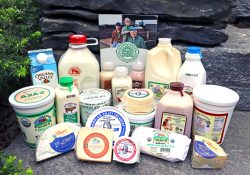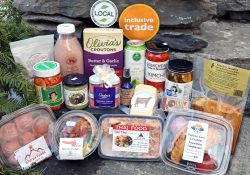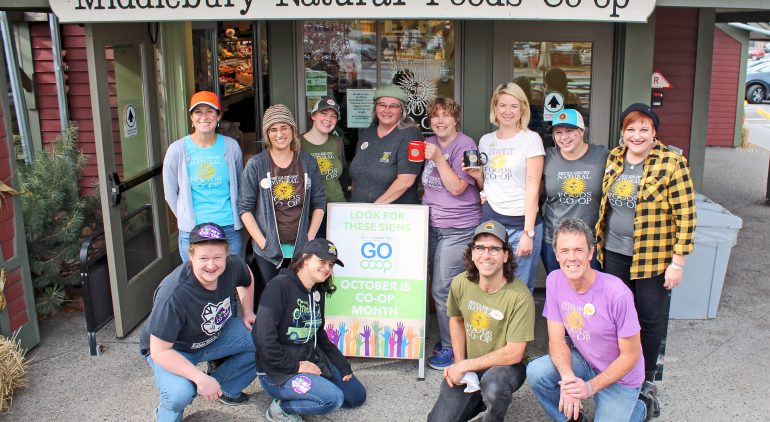
Celebrating Co-op Month!
This October, we’re joining co-operatives and credit unions across the United States in celebrating Co-op Month, observed nationally since 1964. This year’s theme, “Co-ops Commit: Diversity, Equity & Inclusion,” was chosen by the National Cooperative Business Association (NCBA CLUSA) to promote how co-ops and their members are working together to build more inclusive businesses and more resilient communities.
Our Co-op is celebrating this special month in a number of ways. Throughout the month, we’ll be promoting some of our favorite Co-op-made products and brands. Check out our Weekly Sale and Member Deals displays all month long to find great deals on co-op-made products by Equal Exchange, Aura Cacia, Blue Diamond, Alter Eco, Organic Valley, La Riojana, and more. Be sure to check out the Addison Independent each week for coupons that will offer even deeper discounts on these great products. We’ve also dedicated the latest edition of our Under The Sun newsletter to our local co-operative food system and all of the people who make it shine. Finally, we invite you to check out a free screening of Food For Change, a fantastic documentary by filmmaker Steve Alves, which traces the history of food cooperatives in the United States. We hosted a screening of this film here at our Co-op a few years back and it’s a treat to be able to offer a link for a free virtual screening in celebration of Co-op Month!
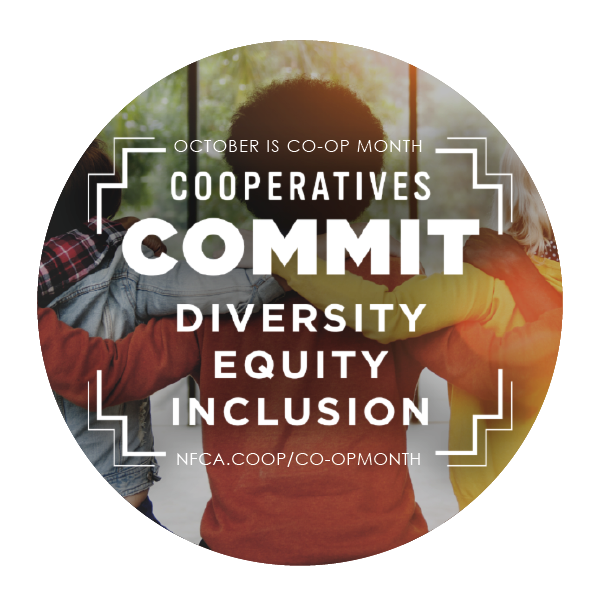
Diversity, equity, and inclusion are critical components of our work here at the Co-op and we remain dedicated to centering these issues so that we’re able to create a more welcoming, inclusive, and participatory atmosphere at our Co-op. After all, people have historically used food co-ops to improve access to healthy, local, affordable food, and build stronger, more inclusive communities and this valuable work must continue. Most co-op grocery stores got their start during times of social and economic change, enabling people to access healthy food, support local producers, and provide good jobs. More recently, a new wave of startups has been growing, representing a renewed interest in food security, and racial and economic justice. Today, the Neighboring Food Co-op Association (NFCA) includes 40 food co-ops and startups, jointly owned by more than 150,000 members and employing over 2,350 people. Together, these co-ops generate shared annual revenue of nearly $347 million, with local products representing close to a third of total sales.
“Our vision for a more inclusive economy is one of shared prosperity and well-being, of empowering people to work together to build a better future for themselves and their families,” said Erbin Crowell, NFCA executive director and chair of the NCBA CLUSA board of directors. “And as co-operatives, we have to acknowledge that this vision cannot be achieved without also confronting the racism, inequality, and injustice in our society and its institutions.”
Our staff is actively engaged in the necessary work of better understanding how we can be a part of dismantling the systems of oppression in our country. One of the ways that we’re diving deeply into this critical issue is through a series of staff book clubs. Staff members selected one of three titles to engage with, including So You Want To Talk About Race by Ijeoma Oluo, White Fragility: Why It’s So Hard for White People to Talk About Racism by Robin DiAngelo, and My Grandmother’s Hands: Racialized Trauma and the Pathway to Mending Our Hearts and Bodies by Resmaa Menakem, then joined the corresponding book group so that we could engage in honest conversations about racism and the way it impacts all aspects of American life. Our Board of Directors is doing similarly engaging work, which you can read more about in this blog post by Board Member Erin Buckwalter. We believe in the transformative power of this work and understand that it is necessary if we are to create the diverse, equitable, and inclusive environment that we envision for our Co-op and beyond.

Food co-ops are not alone in their contribution to more inclusive and resilient local communities. From farmer co-ops to worker co-ops, credit unions to mutual insurance, and housing co-ops to energy co-ops, co-operative businesses thrive across the U.S. economy, where 350 million people are co-op members. Nationwide, co-ops generate $514 billion in revenue and more than $25 billion in wages, according to NCBA CLUSA. And because they are member-owned, co-operatives are rooted in their communities and governed by the people who use them to meet their needs, rather than outside investors.
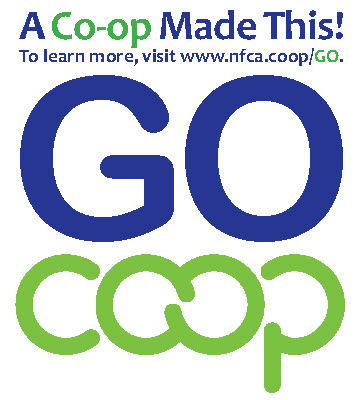
Stop into the Co-op during Co-op Month to learn more about what makes co-operatives different. And while you’re there, look for the “Go Co-op” signs on the shelves that identify products that were “co-op made”. You may be surprised by what you find, including dairy products from Cabot Creamery Co-op and Organic Valley, fresh produce from Deep Root Organic Co-op, fairly traded coffee, tea, and chocolate from Equal Exchange, beverages from Katalyst Kombucha and La Riojana wines, seeds and bulbs from FEDCO, naturally fermented vegetables from Real Pickles, Northeast Grown frozen fruits and vegetables from your Neighboring Food Co-ops — and many others. Visit www.nfca.coop/co-opproducts for a more comprehensive list.
To learn more about the food cooperatives in your region and their collective impact, please visit www.nfca.coop.

